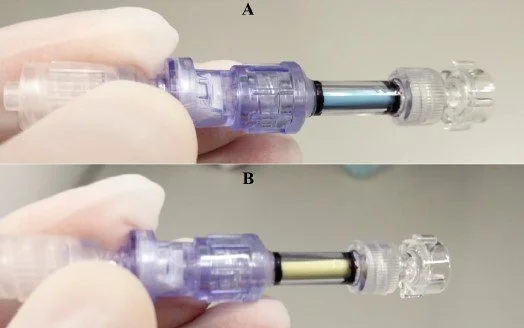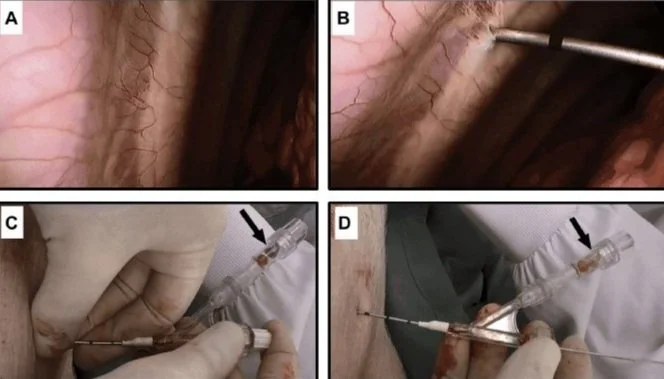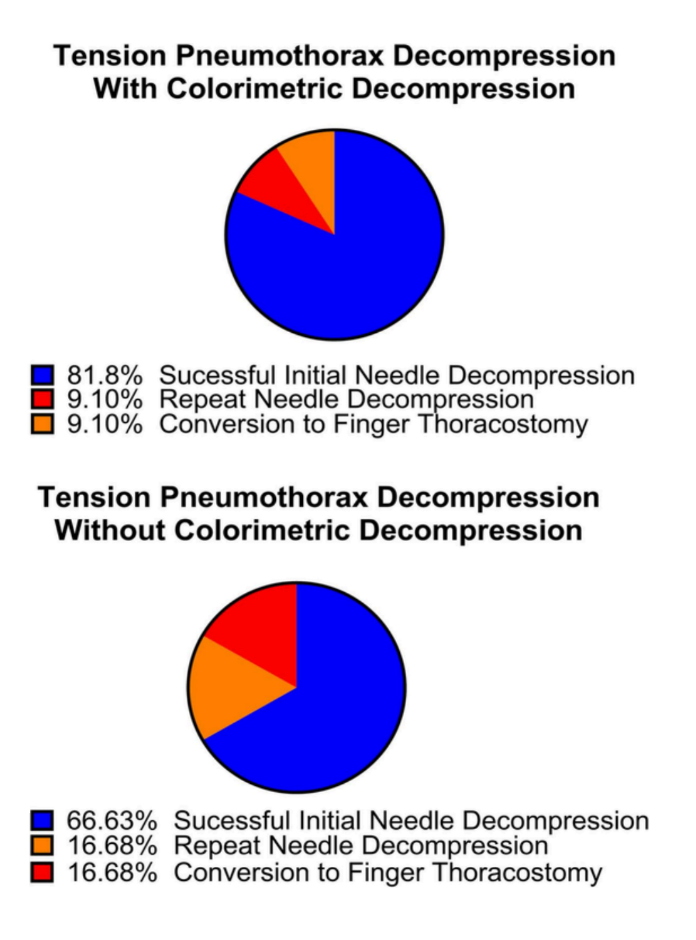
Clinical Articles
Prehospital Trauma Compendium: Traumatic Pneumothorax Care – a position statement and resource document of NAEMSP
Paper published in Prehospital Emergency Care regarding NAEMSP guidelines on managing patients with traumatic pneumothoraces. Statements include “EMS systems must investigate and adopt strategies to confirm successful pleural decompression at the time thoracostomy is performed”.
Decompression of tension pneumothorax in a trauma patient - first use of a novel decompression colorimetric capnography device in human patient
Emergency needle thoracostomy is a life-saving maneuver that allows atmospheric pressure equilibration and partial restoration of cardiac filling. Needle decompressions are usually performed under noisy, tense, and stressful circumstances, and objective assessment of success is difficult in the field. A device which is simple that objectively informs operators of successful decompression would be clinically useful.
Needle Decompression of Tension Pneumothorax with Colorimetric Capnography
The detection of decompression by needle colorimetric capnography was found to be 100% accurate (15 of 15 attempts), when compared with thoracoscopic assessment (true decompression).
Tension Pneumothorax Decompression with Colorimetric Capnography: Pilot Case Series (The Japanese Association for Thoracic Surgery 2021)
This human study confirmed that the colorimetric capnography device is applicable to the prehospital care of patients and with requiring minimal training, the color change was visibly and rapidly apparent and has potential clinical utility.
Colorimetric capnography adjunct during prehospital needle decompression of tension pneumothorax improves decompression success and reduces need for repeat prehospital decompression
Initial decompression utilizing colorimetric detection of CO2 improves initial procedural success, with demonstrably less need for repeat procedures or conversion to finger thoracostomy for treatment of tension pneumothorax. We recommend initial decompression utilizing needle decompression coupled with a colorimetric CO2 sensing device. Future guideline revisions should consider recommending initial needle decompression be coupled with CO2 colorimetry.





